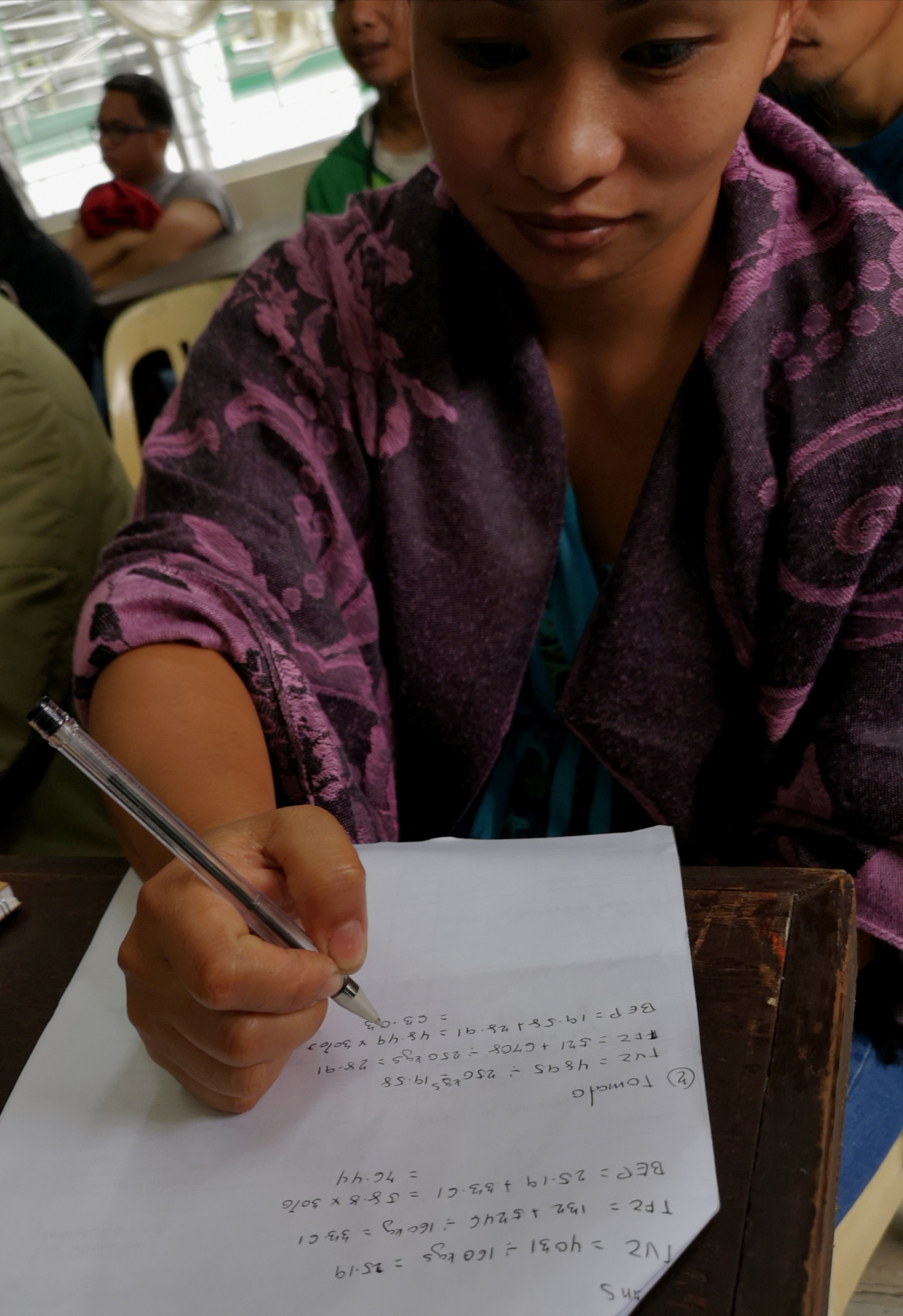Special Session

Iloisa Romaraog, an online marketing entrepreneur from Baguio City, devised a mobile app that will assist, promote and market Benguet agricultural products to help boost farmers’ income in Benguet.
Iloisa Romaraog has been going around the country to instill in the minds of Filipino farmers an elusive yet indisputable truth: that they are entrepreneurs, and they just don’t know it yet.
To do this, she founded the online grocery app called Session Groceries, which has now become a tool to educate local food growers on financial literacy and leadership, as well as an avenue where they can sell their produce at a fair price.
Through the app, consumers may preorder vegetables, fruits and other agricultural products with just a swipe.
Farmers, on the other hand, are given free trainings and seminars on how to compute their costs and profit, as well as how they can save their money.
Romaraog even started a “Farmers Millionaires Club,” believing firmly that local farmers, with the right mind-set, could have a bank account with seven-digit savings.
Article continues after this advertisement“As long as you are trading, you are an entrepreneur. That is something we have to keep reminding them. We have to brainwash them to let go of the old system and make them realize that they can be rich in this endeavor,” she says.
Article continues after this advertisementOnce you install Session on your mobile phone, you’ll be greeted with 62 products that you could order online, from vegetables such as arugula, baguio beans, cabbage, lettuce and okra, to fruits like lemons, bananas, pineapples, grapes and strawberries.
There are also jams, chips, condiments, flower boxes, kitchen essentials and rice—all of which can either be delivered right at your doorstep or picked up at a rendezvous point.
While Session began in Baguio City where Romaraog was born and raised, the venture has now expanded to Mindoro where the team sources most of the rice orders. They are also on their way to operating in the Calabarzon region by the first quarter of next year.
The goal is to bring community-based markets back, where consumers and farmers would have a deeper relationship as buyers and sellers.
On average, Session entertains 500 clients a week. The bestsellers, of course, are the vegetables and rice variants.
“We were surprised at how everything turned out. It’s also because of the community. We realized that the people know the plight of our farmers and they grab every opportunity they get to help. They were so eager to help. We encountered a lot of failures along the way but everyone was really understanding and helpful,” Romaraog says.
In fact, what sparked Romaraog’s interest to venture into agriculture was the same thing that prompted Filipinos to skip the supermarket and directly buy from farmers.
For the past years, oversupply of agricultural products has been rampant amid the lack of market planning and the industry’s flawed value chain.
Vegetable growers in Cordillera, especially, often yield too much of their crops that the unexpected glut forces them to sell vegetables at a loss. There were times when vegetables were simply left to rot as there were no takers.
This situation, however, is not unique in the uplands.
In Mindoro, farmers were burdened with truckloads of surplus garlic. Early this year, mango farmers across the country produced an extra two million kilos of the tropical fruit.
Using her experience as a marketing analyst for 15 years, Romaraog uses technology to encourage farmers and consumers to help one another.

Jocelyn Ortega, 34 years old, a highland vegetable farmer from Tuba, Benguet, learns how to compute farm production costs, thanks to Session Groceries—PHOTOS BY EV ESPIRITU
Jocelyn Ortega, a vegetable grower from Tuba, Benguet, says she only learned how to compute her earnings and losses after attending trainings with Session.
“We compute the costs of our inputs but we don’t include our labor. We were also used to traders telling us the current prices of our goods in the market. We base it on the supply and demand. We didn’t know we can fix the price of our items and dictate that this is how much we want to sell our vegetables,” she says in Filipino.
When before, Ortega would sell vegetables at the rate often given by traders, she now sells her beans and tomatoes at P93 and P100 a kilogram, respectively, with a certain market to cater to.
These prices already include a 20-percent markup. This time, her production costs include labor, packaging and equipment. They also began tracking their yield, their profits and their losses every season.
“This is really a big help for us. We learned which processes need adjustments. We were all farmers in our family but did not know anything about this. These are all new to us,” she adds.Come 2020, Romaraog is bent on pursuing bigger dreams that, through the help of technology, will hopefully turn to realities.
Session Groceries is looking to broaden its footprint not only in the Philippines but in other countries as well. It is also continuously expanding its network to more farmers and cooperatives to bring more products to their customers’ homes and tables.
“There will only be changes in the way we do things in agriculture if we would empower the farmers by teaching them how to empower themselves. In my opinion, once we are able to do that, food security wouldn’t be a problem in this country. We have all the resources we need, we just don’t know how to utilize them well,” Romaraog says.